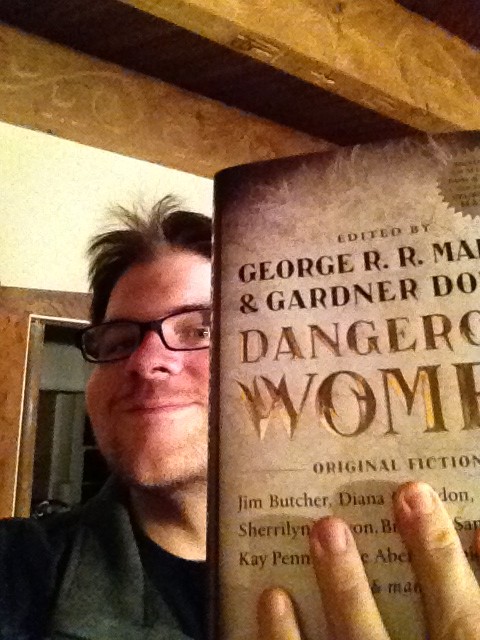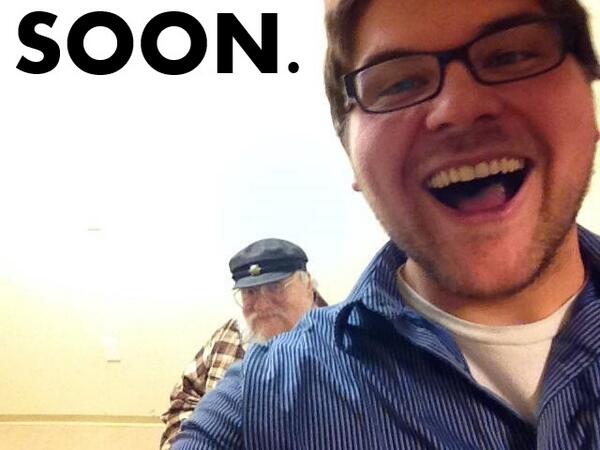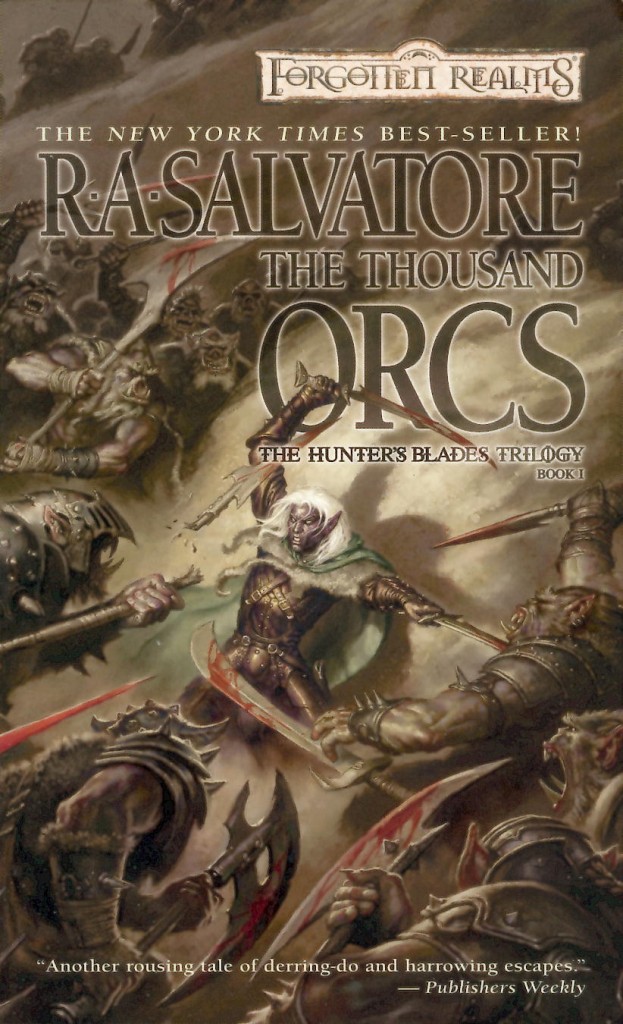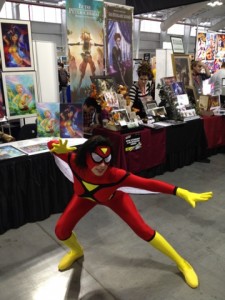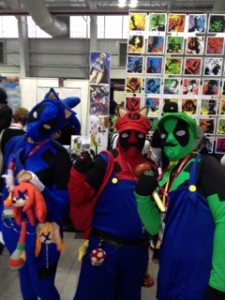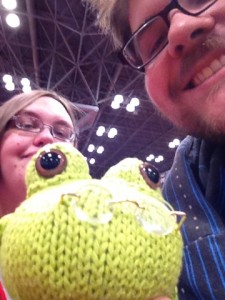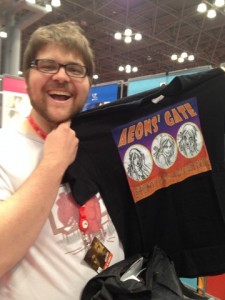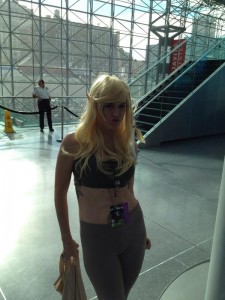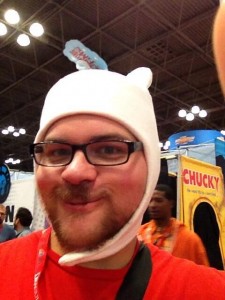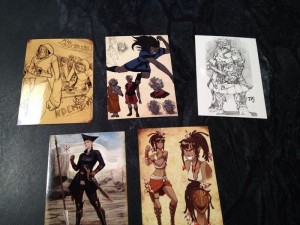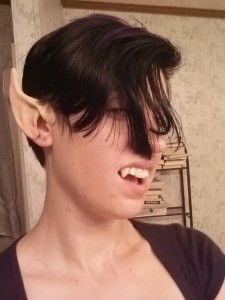I’m pretty sure I’ve mentioned before that I’m a pretty solid fan of Fantasy Faction. Their articles, reviews and community are a part of fantasy fandom that I find quite endearing and their article on writing combat scenes is something I found rather charming.
I’m not sure if I’ve mentioned it before, but I’m also pretty fond of /r/fantasy. However, they have expressed some disgruntlement at the contents of the above article, suggesting that they seem a bit like tips for a video game rather than for actual writing.
As we write and read in fantasy, a genre where the occasional axe-murder is expected rather than fretted over, this topic tends to come up a lot. How does one write compelling combat? Should it be short and full of action, or longer and prosaic? How much research goes into it? How much is present on the page?
And as a man who has been both lambasted and praised for his (many, many, many) combat scenes, I feel somewhat qualified to shed some light on my particular style of writing combat scenes.
Note the last part of that sentence there. I find myself immensely irritated at the idea of writing a guide to write “good” combat scenes. That manner of phrasing suggests, to me, that there is a clear right way and wrong way to write combat scenes. And as I’ve read wildly different and equally compelling combat scenes from two totally different authors, such an idea would invalidate the joy I’ve had in reading them.
The truth is that no author can tell you how to write “good” combat. An author can (and should) only ever tell you how they write combat. To that end, the five items I am about to list are not “rules” that you must absolutely follow. These are merely options I consider when writing a combat scene. Please use them or ignore them at your discretion.
But enough talk, have at you.
Character Dictates Perspective, Perspective Dictates Priority
I know it’s considered blasphemy in some circles to say this, but I really don’t like R.A. Salvatore’s combat scenes. They all feel dreadfully similar to me: lengthy paragraphs with heavy emphasis on technical maneuvering in which most characters seem to have the same priorities (usually parrying and feinting a lot).
This is a trap a lot of beginning authors fall into, being unable to separate what they find fascinating in combat to what their characters would find fascinating. From the farmboy who picks up a sword and instantly knows how to use it to the young princess who can somehow swing a battle-axe like nobody’s business, a lot of authors seem to unconsciously suspend their character in order to portray a thrilling combat scene.
In fact, combat is there to further the character’s development. As such, the perspective, tone and description of the combat scene will change wildly based on which character is in it. A young farmboy picking up his father’s sword to defend his village from raiders will likely be viewing things in flashes: swords coming at him, bodies falling around him, desperately searching for a way out. Whereas a princess trained in the virtues of courtly dueling will likely see things in terms of maneuvers: identifying thrusts, noticing weak points to capitalize upon, considering footing.
To use my own books as an example, the combat scenes involving Lenk, a short, wiry young man with a longsword and not much else, and Gariath, a dragonman weighing several hundred pounds and equipped with claws and fangs, are wildly different. Lenk thinks in terms of survival, his thoughts go moment-to-moment as he leaps, ducks, darts, stabs. Gariath, being a hulking juggernaut without much regard for his own life, thinks in terms of weaknesses, reaching out to find a neck to snap, an arm to rip off and so forth.
This consideration will show the audience the character’s priorities, motivation and ultimately further their character. As a result, they’ll never come out of a scene unchanged.
Leave the Heavy Lifting to the Reader
One of the more forgivable sins of writing (and I say forgivable because I have been guilty of this numerous times) is the urge to go balls-out with your descriptions, showing every glistening droplet of blood, every part of flesh as the knife is twisted in a belly, every fading speck of light leaving a man’s eyes as he takes his last breath, a gentle trickle of saliva sliding down lips still parted in a prayer to a god that apparently heard him a little too late.
You see what happened there, I trust?
The overly-verbose sentences can sometimes be interesting, even poetic, but they subconsciously cheat the reader out of an experience of getting invested in the story.
Here’s a little-known fact: when you leave out key descriptive elements of a scene of high emotional intensity, the audience will subconsciously put them in. Horror and romance have both learned this lesson well. If you describe the descent into a spooky basement down creaking, rotting stairs toward a door that is quaking as something on the other side pounds at it, it doesn’t matter what’s behind it. If you describe the hero gently removing his lady’s boot (sup Dragonlance) and setting it aside, hands running down a now-bare calf, it doesn’t matter what they do after. Your audience will instinctively put what they think is scariest and what they think is sexiest in the blanked-out parts.
This is reader investment. By contributing that part of themselves to the story, the audience is more interested in the outcome. And the same principle works with violence. Describing every action, every maneuver, every detail means the audience is not as invested. They may be gripped, but they are not actually participating and thus will not retain the imagery for as long.
Research Isn’t Everything
I can already hear some of your keyboards furiously clacking out a response to this. For some reason, people draw a strange connection between research and truth. Saying you don’t use as much research in your combat scenes means a lot of people suddenly think you write scenes of bikini-clad warriors taking swords to the abdomen every sentence and still going. Likewise, saying you research religiously means that a lot of people think you are the One True Bearer of Objective Truth and All That You Speak is Gold For the Holy Research Hath Been Committed Unto Memory, Now Go and Error No More, My Chylde.
There are a few uncomfortable truths we could go into about research here (no one researches as much as they say they do, research is continuously contradicted and corrected as it evolves and updates, a lot of people find it incredibly dull), but I want to tell you here and now that, whatever research you’ve done on the exact slope of a 19th century Spaniard Breastplate of King Francois El Diablo, the time to showcase it is not during a combat scene.
Certainly, consider how it’s done. Consider how it would affect things. But don’t pause the middle of your riveting, action-packed scene in which the hero finally confronts his nemesis to explain how the wayward thrust of his foe glided off the slightly-pointed chest of the breastplate, the slope allowing the angle to go wide and leave him open for a blow that was blocked owing to the nemesis’ vambrace, which was buckled instead of tied, owing to greater stability and overall practicality.
Fuck your practicality, nerd. Show me blood.
Pardon.
This isn’t to say that you need to totally ignore the laws of physics or anything else, which is the doomsday scenario people start thinking of when you speak anything less than glowingly of research. Common sense still applies. People are going to find it extremely hard to believe if your lightly-armored hero stares down a heavily-armored juggernaut in toe-to-toe combat and emerges unscathed. Use your head.
Brevity is the Soul of Structure
This is really more a matter of preference, as all structural arguments are. It’s very easy to pinpoint several combat scenes that have gone against what I’m about to tell you and done it effectively, so consider this next point fairly carefully.
I prefer my combat scenes to visceral. I like being a character’s head, seeing the blades coming at him and each desperate swing of his sword as he tries to survive. I like hearing his heart pound in his ears as he leaps over dead bodies, the scent of burning pitch in his nostrils as catapults hurl. I like the taste of copper in his mouth as a gauntleted fist smashes against his nose, heralded by a swift cracking sound.
I keep my sentences short and descriptive, with one or two pieces of imagery. I keep the images vivid and I keep them brief. This wasn’t always the case, mind you. I used to go on at great length about the scent of blood and what not. But I’ve learned a few things since then.
Combat scenes are sprints, not endurance races. You want your audience to feel emotionally invested, waiting with bated breath to see if their hero will be okay. To that end, your audience can easily get emotionally exhausted if you’re not careful how you pace things.
People occasionally give me grief over the fact that I like to use banter or inner monologue in a combat scene. This actually serves a purpose in that it gives the audience a moment to take a breath and then face the next paragraph of onslaught. But it can be no more than a moment (perhaps a sentence or two, at the most).
If Lenk pauses, guard upheld, and sees the feral grin on his opponent’s face and knows that, from what he’s heard of his foe, his only way out is death, that’s exciting.
If Lenk pauses, guard upheld, and reflects upon all he’s learned in life and how his every decision has led to this point where he faces a man, not a monster, and contemplates how it all came to this, how did he lose so much of himself that he was no longer able to discern between the two anymore, that’s boring.
Character Is Everything
Ultimately, your combat scenes will only be as strong as your characters. Because, ultimately, we’re reading for that.
It’s good if your reader is smitten with your prose when you describe the flash of a sword’s blade. It’s great if your reader thinks your pacing is structure are strong and punchy. But it won’t mean dick if they don’t care about who’s holding the sword and who’s throwing the punches. Everything I’ve told you above is a good way to convey a combat scene without suspending or otherwise dithering about character development, but it’ll be the parts beyond the bit where he picks up the sword–the loves left behind, the reasons to live, the people he had to disappoint to get here–that will make the combat scene, not the other way around.
My friend Carl suggested I demonstrate this by invoking, as all good nerds do, The Wrath of Khan. The ultimate scene, the space battle, is a very minor part of the movie that is, by today’s standards, technically unimpressive in which the biggest maneuver is one ship flying a little lower than the other. Yet all that led up to this point is what makes that scene one where the audience is chewing their fingernails in anticipation of what will happen next. And for that reason, it’s still considered a high watermark of space battles.
Ultimately, it’ll be emotion that defines how effective your fighting scenes are.
And guess what?
Everything I told you above also applies to writing sex.
I hope you found this useful.

